Salt vs Fresh Water
The Joys of Swimming in Both
When it comes to wild swimming, the choice between saltwater and freshwater is like deciding between two equally tempting desserts—both have their unique qualities, but each offers a different experience. Whether you’re diving into the salty waves of the sea or gliding through the tranquil embrace of a lake or river, there’s something magical about immersing yourself in nature. Let’s explore the unique joys and challenges of both!
The Case for Saltwater: The Sea’s Endless Adventure
1. Natural Buoyancy
Saltwater provides extra buoyancy, making it easier to float and enjoy a more relaxed swim. This can be especially welcome for beginners or those looking for a less strenuous experience.
2. The Thrill of Waves
Swimming in the sea often comes with the added excitement of waves. Whether you’re jumping through them or body surfing back to shore, the dynamic energy of the sea can be exhilarating.
3. A Sensory Experience
There’s something uniquely invigorating about the salty taste of seawater, the smell of the ocean breeze, and the sound of crashing waves. It’s a full sensory immersion that many find deeply restorative.
4. The After-Swim Glow
The salt in seawater is said to have skin-cleansing properties, leaving you feeling refreshed and glowing after a dip.
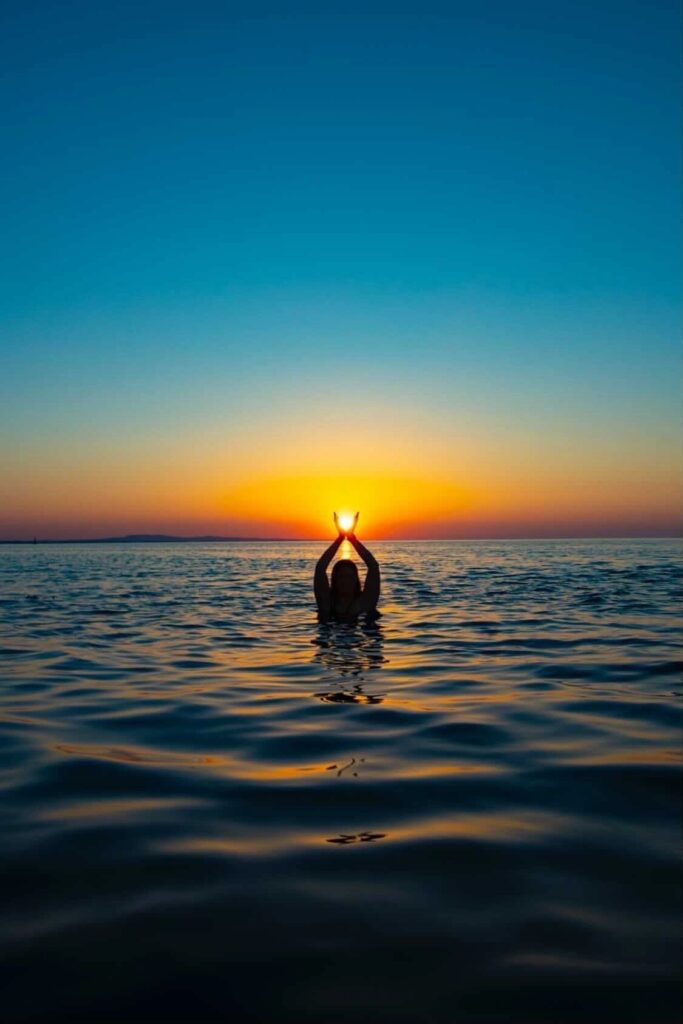
Challenges:
• Tides and currents: Sea swimming demands more awareness of your surroundings, as tides and rip currents can be dangerous.
• Salt sting: Cuts, scrapes, or even your eyes might feel the sting of saltwater, so goggles can be a lifesaver.
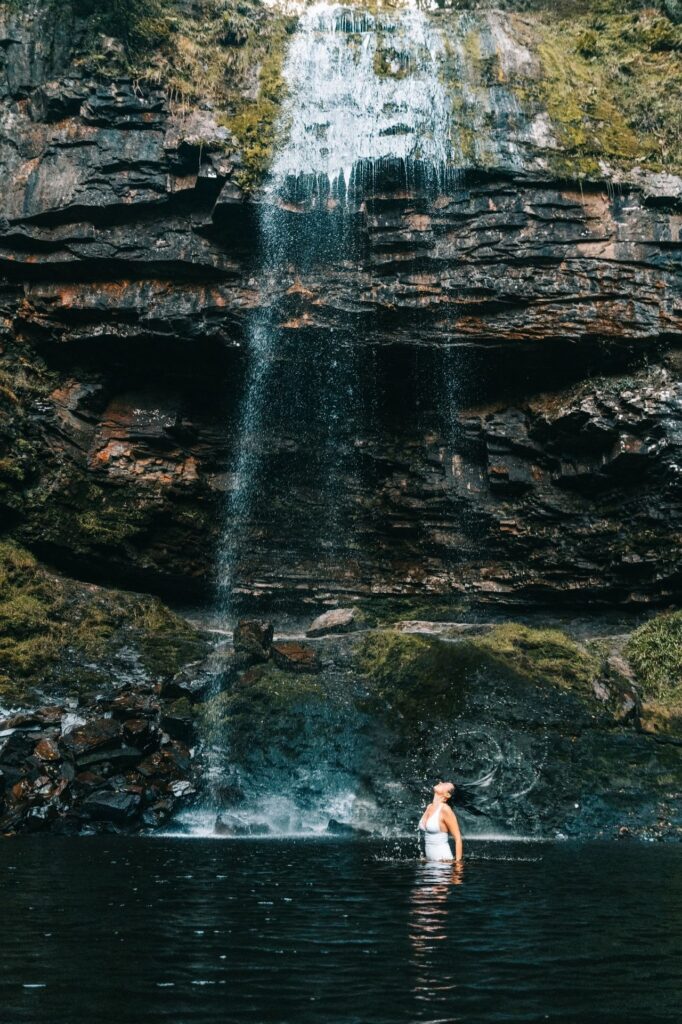
The Case for Freshwater: Tranquillity and Connection
1. Calm and Stillness
Freshwater swimming often means serene lakes or gentle rivers. With no waves to contend with, you can enjoy a more meditative experience, feeling a deeper connection with nature.
2. Easier Access
Rivers and lakes are often found inland, making them more accessible for those who live far from the coast. They’re also less weather-dependent than the sea, offering great swimming conditions even on calm, windless days.
3. Cooler Waters
Freshwater tends to be cooler than the sea, making it ideal for a refreshing plunge on a hot day. It’s also perfect for cold-water enthusiasts who love a bracing dip year-round.
4. Diverse Surroundings
From mountain lakes to forest-fringed rivers, freshwater spots often offer breathtaking scenery. Swimming here feels like stepping into a postcard.
Challenges:
• Temperature: Freshwater can be significantly colder, especially in rivers and shaded areas, so acclimatisation is key.
• Mud and weeds: Not everyone loves the feeling of squelchy mud or brushing against underwater plants!
Safety Tips
Before You Swim
- Research Your Spot: Check the conditions of the area you’re swimming in. For sea swimming, look up tide times, currents, and wave forecasts. For rivers and lakes, learn about water depth, underwater hazards, and water quality.
- Check the Weather: Avoid swimming in adverse weather conditions, as wind and rain can make swimming more dangerous and the water colder.
- Start Slow: If you’re new to wild swimming, stick to easy-to-access and popular spots with others around. Build confidence before attempting remote or challenging locations.
- Never Swim Alone: Always go with a friend or let someone know where you’re going and when you’ll return.
- Acclimatise to Cold Water: Enter the water slowly to let your body adjust to the temperature and avoid cold water shock.
While You Swim
- Stay Close to Shore: Especially in the sea or a large lake, don’t venture too far from the safety of the shore.
- Beware of Currents and Tides: In the sea, always swim parallel to the shore, not out to sea. Learn to identify rip currents and how to escape them (swim sideways, not against the current).
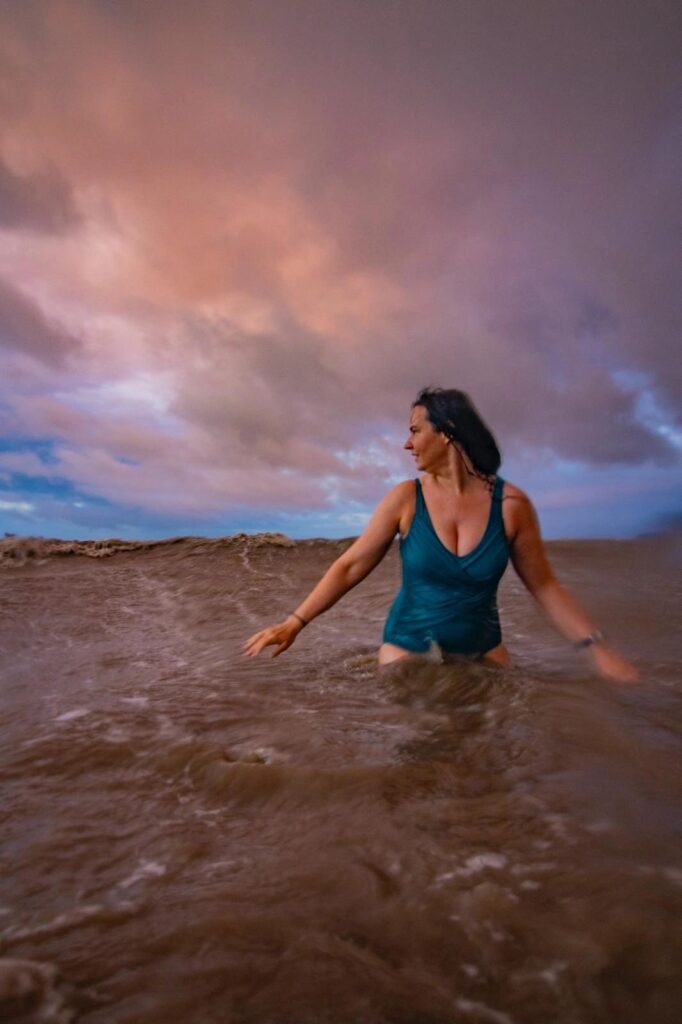
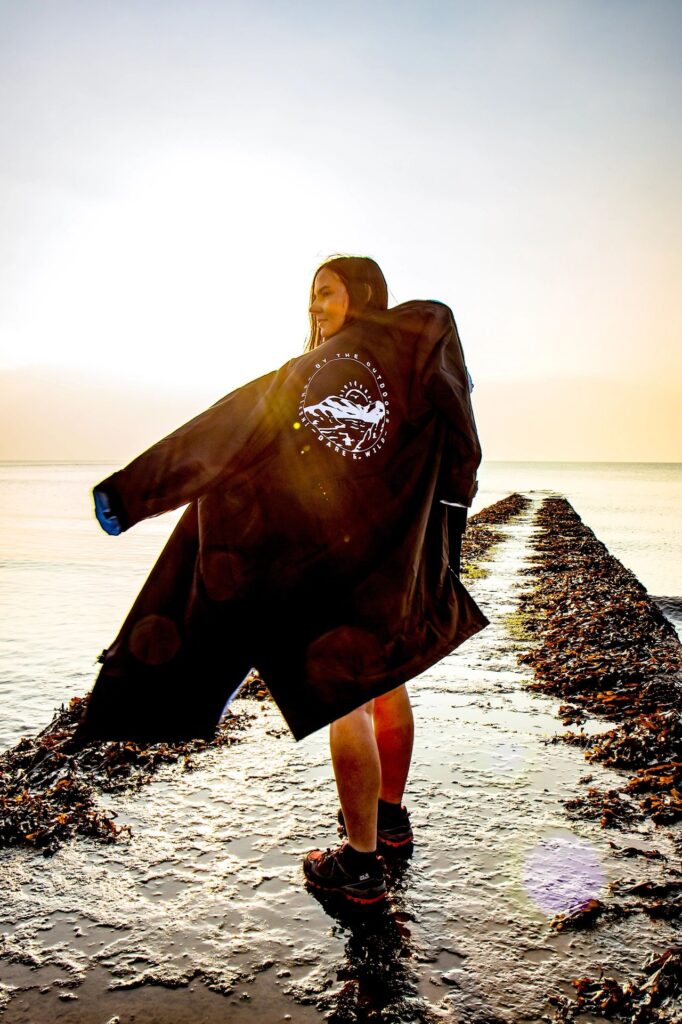
- Watch for Hazards: Look out for rocks, debris, weeds, and other underwater obstacles. Avoid jumping into unknown waters to prevent injury.
- Know Your Limits: Don’t push yourself to swim too far or for too long, especially in cold water. If you start to feel too cold or tired, get out.
- Stay Visible: Wear a bright-colored swim cap and use a tow float to make yourself visible to others, especially in the sea or busy swimming areas.
After You Swim
- Warm Up Gradually: After getting out of cold water, dry off quickly and put on warm clothing, including a hat, to prevent after-drop (a continued drop in body temperature).
- Hydrate and Refuel: Bring a hot drink and a snack to warm you up and replenish your energy.
What to Bring
- Swimsuit or Wetsuit: A wetsuit is ideal for colder water, providing insulation and buoyancy. Especially if you are new to outdoor swimming.
- Bright-Colored Swim Cap: Helps keep your head warm and makes you visible to others.
- Tow Float: Provides extra visibility and a place to rest if you need a break.
- Quick-Dry Towel: A compact, lightweight towel to dry off quickly.
- Warm Clothes: Pack a hat, gloves, thick socks, and layers to warm up after your swim.
- Changing Robe: A warm, weatherproof robe like a Dryrobe makes changing easier and keeps you cozy.
Safety Gear
- Waterproof Bag: To keep your belongings dry if you’re walking to your swim spot.
- First Aid Kit: A small kit with essentials for cuts or minor injuries.
- Emergency Whistle: Useful for signaling for help if needed.
Extras
- Hot Drink in a Flask: A cup of tea or hot chocolate is a lifesaver after a cold dip.
- Snacks: High-energy foods like chocolate, nuts, or energy bars to refuel.
- Footwear: Sturdy shoes or water shoes to navigate rocky paths or protect your feet in the water.
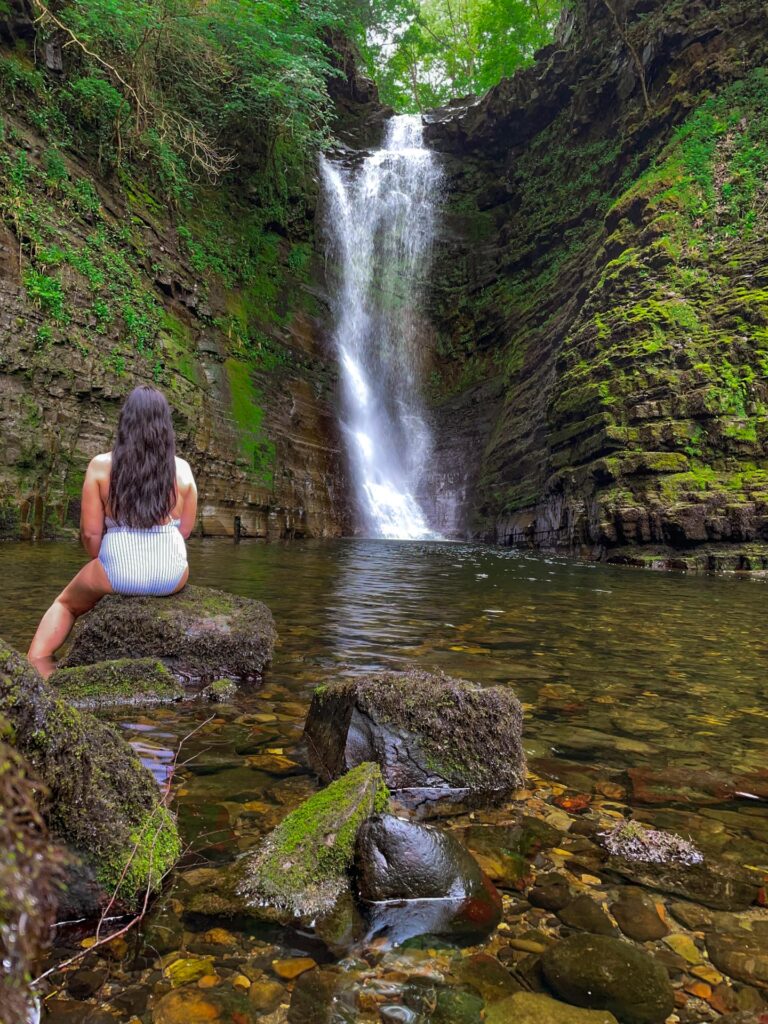
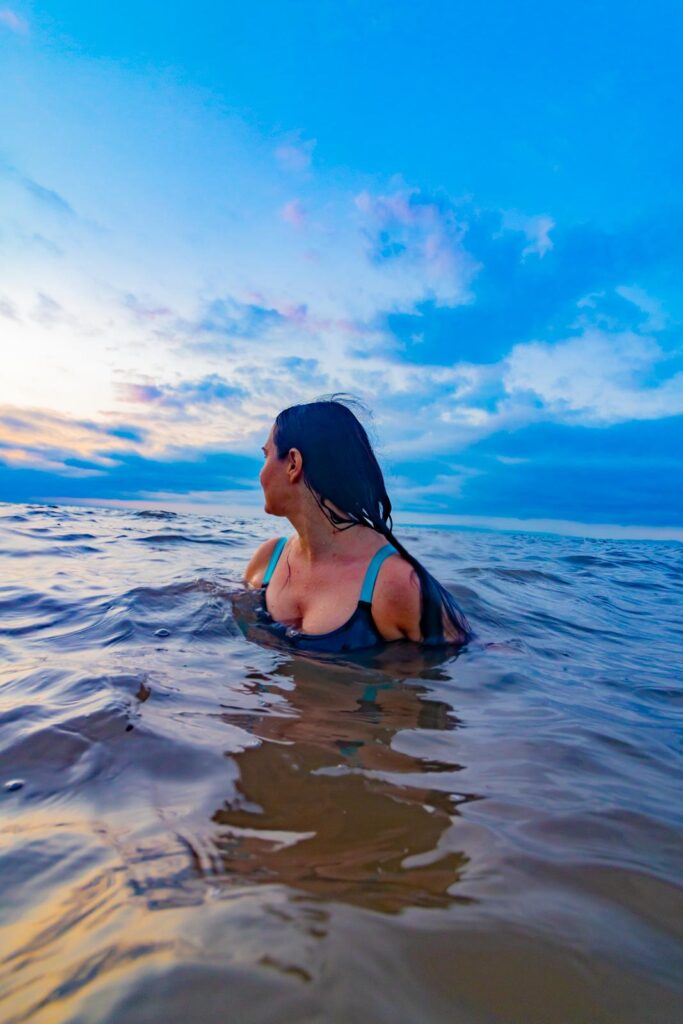
How to Choose?
If you’re lucky enough to live in Wales, you don’t have to! With beautiful beaches and freshwater gems there’s a world of options waiting for you. Here are a few things to consider when deciding:
- Mood: Seeking adventure? Head to the sea. Craving tranquillity? Opt for a lake or river.
- Weather: If the wind is whipping up waves, a sheltered freshwater spot might offer calmer conditions.
- Skill Level: Freshwater is often easier for beginners, while sea swimming can be more challenging but also more rewarding.
The Best of Both Worlds
Why choose when you can enjoy both? Many routes in Wales offer a chance to combine walking with either type of swim, letting you experience their contrasting charms in one day.
Whether you’re drawn to the wild energy of the sea or the peaceful embrace of a lake, there’s no wrong choice. Both saltwater and freshwater offer a chance to escape, reconnect with nature, and emerge refreshed and invigorated. So grab your swim gear and head out—you might just find that your heart belongs to both.

